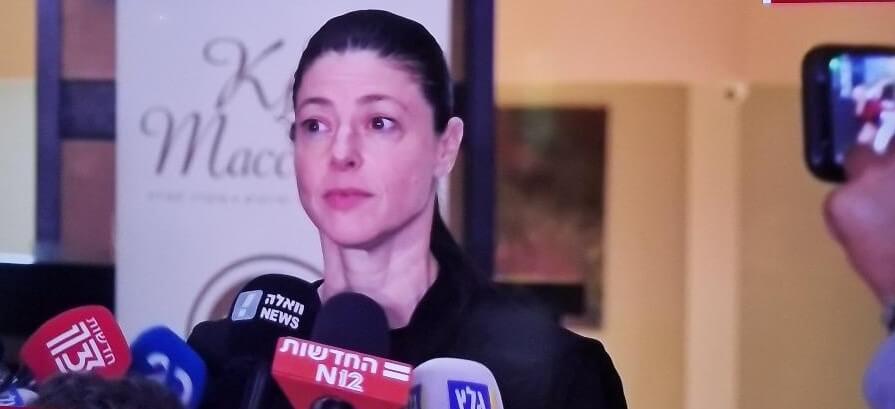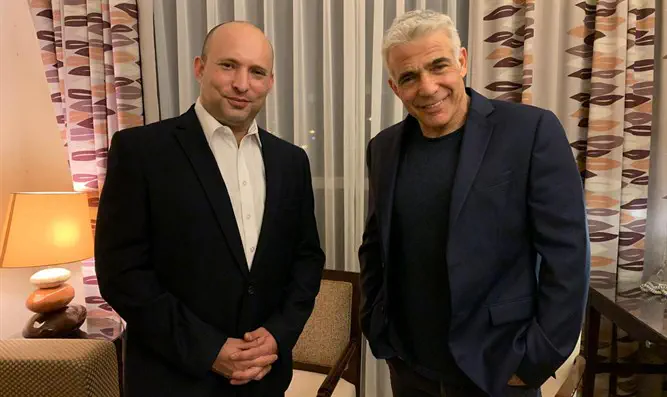JERUSALEM — Isaac Herzog, a veteran Labour politician was elected president Tuesday, to a largely ceremonial role that is meant to serve as the nation’s moral compass and promote unity.
The anonymous vote was held among the 120 members of the Knesset, or parliament. Herzog will be Israel’s 11th president, succeeding Reuven Rivlin, who is set to leave office next month after seven years in office.
Herzog, 60, is a former head of Israel’s Labour Party and opposition leader who unsuccessfully ran against Prime Minister Benjamin Netanyahu in the 2013 parliamentary elections.
He is the scion of a prominent Zionist family. His father, Chaim Herzog, was Israel’s ambassador to the United Nations before being elected president. His uncle, Abba Eban, was Israel’s first foreign minister and ambassador to the United Nations and United States. His grandfather was the country’s first chief rabbi.
Herzog defeated Miriam Peretz, an educator who was seen as an outsider. She was also seen as closer to the country’s dominant conservative and nationalist political camp.
Since resigning from parliament, Herzog has for three years been head of the Jewish Agency, an influential organisation that works closely with the government to promote immigration to Israel. He was widely seen as the favourite because of his deep ties to the political establishment. He will hold office for a single seven-year term starting July 9.
The president, while largely a ceremonial head of state, is tasked with tapping a political party leader to form governing coalitions after parliamentary elections. Israel has held four national elections in the past two years amid a protracted political crisis.
The president also has the power to grant pardons, creating a potentially sensitive situation as Netanyahu stands trial for a series of corruption charges.
— Edging out Netanyahu —
In the race to form the cabinet, Israel’s opposition leader moved closer to unseating Prime Minister Benjamin Netanyahu on Wednesday after agreeing terms with several parties including one led by Defence Minister Benny Gantz, a spokesman said.
Yair Lapid, a centrist tasked with forming the next governing coalition after the conservative Netanyahu failed to do so in the wake of an inconclusive March 23 election, has until midnight (2100 GMT) on Wednesday to present a final slate.
Lapid, a 57-year-old former TV host and author, has yet to clinch a deal with his main partner, nationalist Naftali Bennett, who would serve as premier first under a proposed rotation between the two men.
Lapid’s Yesh Atid party and Gantz’s centrist Blue and White said in a joint statement they had “agreed on the outlines of the government and core issues relating to the strengthening of democracy and Israeli society”.
Gantz would remain defence minister in the new cabinet, the parties said.
Netanyahu, 71, has sought to discredit Bennett and two other rightists negotiating with Lapid, saying they were endangering Israel’s security, an allusion to efforts to curb Iran’s nuclear programme and manage ever-fraught Palestinian ties.
Deals have also been reached with the left-wing Meretz and centre-left Labour parties as well as with former defence minister Avigdor Lieberman’s nationalist Yisrael Beitenu party, a Lapid spokesman said.
The United Arab List was also negotiating to join the coalition. If it does, it would be the first time in Israel’s history that an independent Arab party became a member of the government.
If Lapid misses Wednesday’s deadline, marking the end of a 28-day presidential mandate to put together a coalition, parliament will have three weeks to agree on a new candidate.
Should that fail, Israel will hold another election, its fifth in some two years.
Former centre-left politician Isaac Herzog elected Israel's president in wake of Israel-Palestine clashes
Former centre-left politician Isaac Herzog has been elected as the country's president, a role that is largely ceremonial but also meant to promote unity among ethnic and religious groups.
Reuters
Jerusalem
June 2, 2021

Presidential candidate Isaac Herzog (left) shakes hands with Yariv Levin, Speaker of the Knesset, during a special session of the Knesset whereby Israeli lawmakers elect a new president, at the plenum in the Knesset, Israel's parliament, in Jerusalem on Wednesday. (Reuters)
Israel's parliament on Wednesday elected former centre-left politician Isaac Herzog as the country's president, a role that is largely ceremonial but also meant to promote unity among ethnic and religious groups.
Herzog beat rival candidate Miriam Peretz, an educator and mother of two Israeli infantry officers killed in battle, by a vote of 87 lawmakers to 26.
He will assume the presidency next month, replacing Reuven Rivlin, who is ending his seven-year term.
First elected to parliament in 2003, Herzog, 60, went on to lead the Labour party and hold several portfolios in coalition governments. His most recent public post was as head of the Jewish Agency for Israel, which encourages immigration.
CHECK THESE OUTMORE

Naftali Bennett, right-wing leader and self-made tech millionaire, who may unseat Netanyahu
Defeated by Prime Minister Benjamin Netanyahu in a 2015 national ballot, Herzog was picked as president as his former nemesis faced possible toppling by a cross-partisan alliance of challengers.
ALSO READ | Netanyahu’s opponents race to finalise coalition govt ahead of midnight deadline
The struggle over the premiership has set off rancour in Netanyahu's religious-rightist base. Many left-leaning Israelis have long demanded his ouster as he is under trial on corruption charges - which he denies.
Last month's fighting between Israel and Palestinian militants in Gaza also touched off rare mob violence among the Jewish majority and Arab minority within Israeli cities.
"It is essential, really essential, to tend to the open wounds that have been opened in our society recently," Herzog said in parliament, accepting the appointment.
"We must defend Israel's international standing and its good name in the family of nations, battle anti-semitism and hatred of Israel, and preserve the pillars of our democracy."
Herzog, a lawyer, is a son of the late Israeli president Chaim Herzog, who also served as his country's ambassador to the United Nations.
He is popularly known by his childhood nickname "Bougie", a combination of the Hebrew word for doll "buba" and a word for toy used by French children, "joujou".
Live TV





















